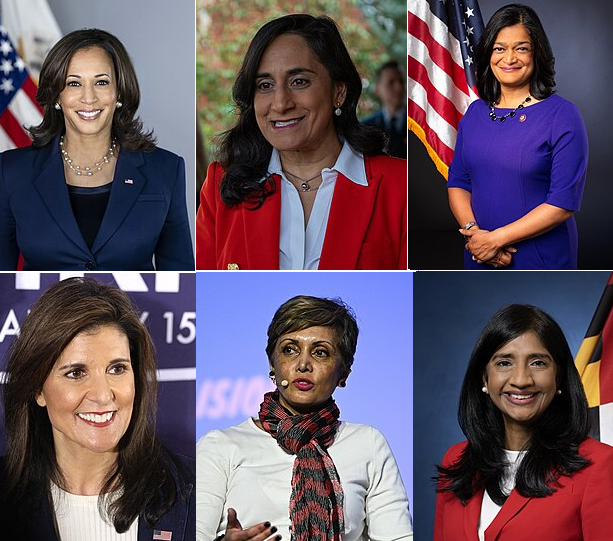
The landscape of U.S. foreign policy is being increasingly shaped by the voices of diaspora advocacy organizations. Groups such as the Hindu American Foundation (HAF) illustrate the growing complexity of the relationship between domestic advocacy and foreign influence. As these organizations gain prominence in the political arena, significant questions arise regarding transparency, accountability, and the relevance of the Foreign Agents Registration Act (FARA), originally established to mitigate foreign influence in American politics. The current interpretation and application of FARA seem ill-equipped to handle the nuanced role that diaspora groups play, leaving a substantial gap in regulatory oversight.
HAF’s activities exemplify the challenges faced by U.S. regulators. While its mission is ostensibly to advocate for Hindu Americans, its lobbying efforts often mirror the agenda of India’s ruling Bharatiya Janata Party (BJP), particularly under the leadership of Prime Minister Narendra Modi. From supporting contentious policies like the Citizenship Amendment Act to opposing U.S. military aid to Pakistan, HAF’s positions frequently align with the interests of the Indian government. Despite this alignment, HAF has managed to evade the requirement to register as a foreign agent under FARA, raising concerns about the implications for U.S. foreign policy.
U.S. law defines a foreign agent as an individual or entity that acts “at the order, request, or under the direction or control” of a foreign principal while engaging in political activities on their behalf. Critics argue that the mere alignment of HAF’s advocacy with the positions of the Indian government does not satisfy this legal threshold. However, HAF’s close collaboration with the Indian embassy and consistent defense of Modi’s policies suggest a more complex relationship that merits scrutiny. This relationship underscores the need for a reevaluation of how FARA is applied in the context of diaspora organizations.
The core issue lies in FARA’s inadequacy in addressing the subtleties of diaspora lobbying. The Act was designed to manage overt cases of foreign influence, but the reality of globalization allows diaspora groups to advocate for their countries of origin while maintaining a facade of independence. This creates a significant loophole, permitting organizations to shape U.S. foreign policy in ways that serve foreign interests without the accountability that FARA demands.
The situation surrounding HAF highlights the pressing need for reform within FARA. Currently, the law necessitates a direct financial or contractual relationship between an organization and a foreign government for registration requirements to apply. This standard is too rigid, particularly in scenarios like HAF’s, where influence is exercised through ideological alignment rather than explicit contracts. The law’s reliance on proving direct intent or control reflects outdated assumptions about foreign influence that fail to account for modern advocacy dynamics.
The existence of diaspora organizations in U.S. politics is not inherently problematic; these groups often provide essential representation for their communities and can enrich the political discourse. Nevertheless, when such organizations engage in lobbying efforts that directly benefit foreign governments, it is crucial to implement mechanisms that promote transparency. As Benjamin Freeman, director of the Democratizing Foreign Policy program at the Quincy Institute, notes, lobbying for foreign policy outcomes on behalf of a foreign principal should undoubtedly be recognized as “political activities” under FARA. Without reforms to the Act, diaspora groups like HAF will likely continue to navigate a gray area, free from the necessary scrutiny and oversight.
A potential avenue for reform could involve lowering the threshold for FARA registration when diaspora organizations lobby on foreign policy matters that align with the interests of their home governments. This approach would not criminalize diaspora advocacy; instead, it would foster transparency and allow U.S. policymakers and the public to better understand the potential influences at play. Transparency is not an attempt to stifle the voices of diaspora groups but rather a commitment to ensuring that foreign governments do not exert covert influence over U.S. policy.
Ultimately, FARA’s primary objective is to uphold the transparency of the democratic process. If diaspora organizations like HAF are genuinely concerned about the perception of foreign agency, they should support reforms that enhance clarity and accountability in their operations. Through such reforms, we can work towards ensuring that U.S. foreign policy is driven by American interests rather than being quietly shaped by foreign governments.
In conclusion, the rise of diaspora advocacy groups presents a dual-edged sword for U.S. foreign policy. While these organizations can amplify the voices of marginalized communities, they also introduce challenges related to foreign influence that require careful consideration and regulation. As the landscape of American politics evolves, so too must the mechanisms intended to safeguard its integrity. By reexamining and reforming FARA, we can foster a political environment that embraces transparency and accountability, ensuring that the voices of diaspora communities enrich rather than undermine the foundations of U.S. democracy.
